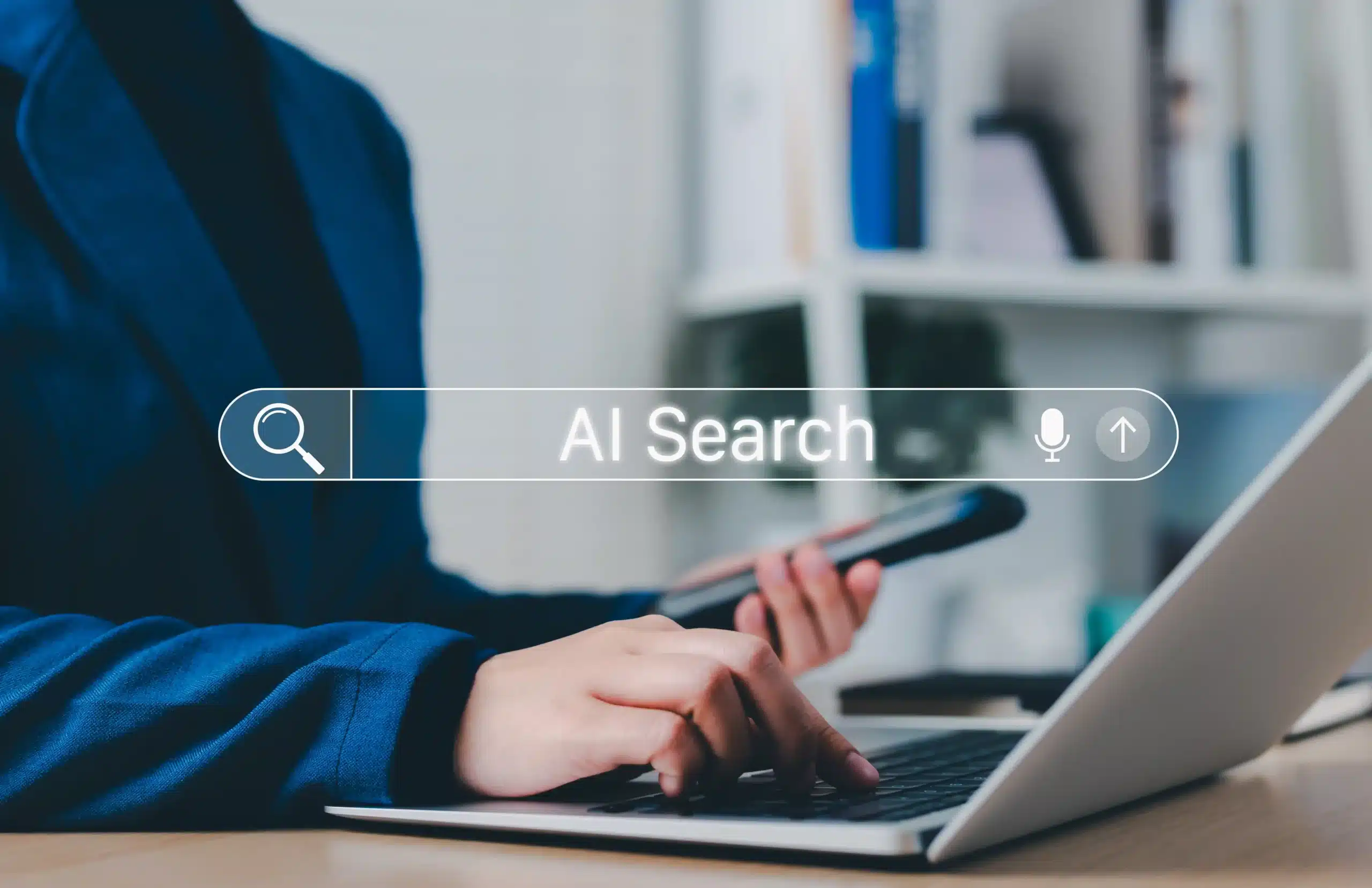Modern generative AI systems handle billions of web sources every day, so it’s important for website owners to understand the criteria AI systems use when they select which sources get cited in their responses. The question of how AI cites sources involves intricate algorithms that assess content quality, relevance, and authority before making attribution decisions. These citation systems have a direct impact on content creators, researchers, and businesses whose work may or may not surface in AI-generated answers. This guide breaks down how AI citation works and includes practical strategies to improve your content’s chances of being selected and cited.
The Role of Web Sources in Generative AI Responses
Generative AI tools acquire their knowledge by studying vast collections of web pages, articles, and online resources during their development phase. This extensive exposure to internet content helps them learn language patterns and build a database that covers many subject areas. When users ask questions, AI systems summarize information from their web-based training to construct meaningful and relevant answers. Some AI systems can also search the internet in real time and provide succinct answers. However, since online content varies greatly in quality and accuracy, generative AI responses may at times contain incorrect or outdated information. Users should therefore verify critical details through reliable sources rather than blindly accepting AI-generated content, particularly when making important decisions or conducting research.
How Generative AI Selects Sources
When you search using AI-powered tools, the search engine doesn’t just give you a list of links like typical search engine results pages. Rather, it sorts through many different sites and gathers information to create a complete response. Here are the main factors that determine which sources AI search engines cite:
1. Topical Relevance
AI systems pay attention to websites that present expert information about specific areas rather than just mentioning topics briefly. If you consistently create long, detailed content about particular topics, AI starts to recognize your site. This means that when someone asks a question related to your speciality, AI will be more likely to pull information from your pages. The key is demonstrating a strong understanding through broad coverage rather than just hitting popular keywords.
2. Semantic Alignment
AI focuses on understanding what users actually mean rather than just matching keywords. Your content should respond to the actual questions users do have, not simply fill sentences with keyword stuffing. By writing in a way that genuinely helps readers solve problems, you increase the chances that your content will be cited by AI platforms.
3. Domain Authority
AI trusts certain kinds of websites more than others, especially known sources like prominent news sites, official government websites, and educational institutions. If these trusted sites link to your content or mention your work, it signals to AI that your information is reliable. Building connections with influential sources in your industry helps establish the credibility that AI tools look for.
4. Content Structure and Clarity
Proper formatting makes it easier for AI to locate and extract specific information from your pages. Well-organized headings, bullet points, and short paragraphs help algorithms quickly identify relevant sections. When your pages have a clear content structure, it reduces the chance of AI misinterpreting your content and increases the likelihood of accurate extraction.
5. Content Freshness
AI prefers websites that continuously update their information and maintain accuracy over time rather than letting content become outdated. Fresh content shows that you stay involved with your topic and care about providing reliable information. Regular updates are a sign to AI that your site remains a trustworthy source for current questions.
6. SEO Signals
Websites already ranking high in regular search results get chosen by AI because they’ve proven their value through existing ranking systems. These pages have demonstrated relevance and quality that AI can recognize and trust when building responses. However, AI sometimes finds valuable content from pages that don’t rank at the very top if they offer something special or unique. This gives well-written content opportunities to appear in AI answers when competing against more established pages.
How and When Generative AI Cites Sources
AI technologies have developed various methods to notify users of the source of their information, though the quality and reliability of these citations differ significantly across different tools. This is how major generative AI systems cite their responses to original sources:
1. Google AI Overviews
Google’s AI Overviews provides AI-generated summaries with links to the original source sites. These source cards give short previews of some of the web pages that contributed information to the AI’s response.
2. Perplexity AI
Perplexity places numbered citations directly within its answers, allowing users to see exactly which sources are responsible for each specific claim or piece of information. These numbers act as direct links to the original articles and websites that published the information. The system also displays all source URLs in an organized list below every answer, providing multiple ways for users to access and read the original material that the AI’s answer was based on.
3. Bing Copilot
Microsoft’s Bing Copilot uses numbered footnotes in its responses that correspond to source information provided at the end of each response. If users see a small number after a statement, they can click on it or scroll down and find the matching footnote with the source link and description. This traditional citation format allows users to identify which specific sources were used to formulate different parts of the response.
4. ChatGPT
ChatGPT generates responses without providing reliable links to actual sources. This limitation means users cannot depend on ChatGPT for properly sourced information and have to do their own research to verify any facts or statements presented in the AI’s responses.
What Makes Content More Likely to Be Cited?
Here’s an overview of what makes AI systems prefer your content to millions of other sources available online.
1. Fact-Based Writing
Generative AI search engines prioritize content that exhibits clear accuracy and contains verifiable information from authoritative sources. Your content becomes more credible when it includes specific statistics, research findings, and correctly attributed data instead of making general claims. If your content consistently delivers factual insights with proper source attribution, AI systems will recognize your website as a dependable reference point.
2. Schema Markup
Adding structured data markup on your website creates an open channel for communication between your content and AI systems. This allows AI to instantly recognize key information like business details, product features, and services provided without needing to read unstructured text. With schema markup, AI can quickly crawl your content and pull the correct information to answer user queries.
3. Q&A Format
Delivering information through frequently asked question pages aligns with the way AI systems process searches and deliver information to users. It enables you to provide short, direct answers that AI can easily pull and cite to respond to similar queries. In-depth FAQ pages addressing common and specific questions offer many opportunities for citation across different search contexts.
4. Original Research
Creating original studies, surveys, and data analysis makes your content a primary source that’s unavailable anywhere else on the web. AI tools value original research since it provides users with fresh information and insights not available elsewhere. By publishing original data points and first-hand findings, you position your content as a trusted source for AI tools searching for full, comprehensive answers.
5. High Topical Authority
Establishing recognized authority requires consistent publication of high-quality, thorough content that demonstrates wide expertise in your niche. AI algorithms assess authority through multiple signals like quality backlinks, mentions in reputable publications, and excellent user ratings.
Strategies to Increase AI Citation Visibility
If you want your content to appear in AI-powered search results and citations, you must adapt your optimization approach beyond traditional SEO methods. These strategies will help AI systems discover, understand, and reference your content more effectively.
1. Optimize for both SEO and AEO
SEO creates the foundation that AI systems depend on when selecting content for responses, since research shows that over a large percentage of AI citations come from pages already ranking in the top ten search results. Your content needs strong technical elements like fast loading speeds, mobile optimization, and proper crawlability. Answer Engine Optimization (AEO) takes this further by structuring your content to provide direct answers that AI systems can easily extract and present to users. This means creating clear, concise responses to specific questions while maintaining the SEO fundamentals that help both traditional search engines and AI platforms find your content.
2. Implement Semantic HTML
Proper HTML markup using semantic tags like <header>, <nav>, <main>, <section>, and <article> provides AI systems with clear information about your content structure. These specific tags tell AI crawlers exactly what type of content they’re analyzing, making it much easier for them to add relevant quotes, statistics, and main information for citations. When you implement semantic HTML correctly, you create a clear roadmap that helps these tools search and comprehend your content more effectively than sites using basic markup.
3. Build Topic Clusters
AI tools favor websites that show comprehensive knowledge through interconnected content networks rather than standalone articles or random topics. First, create a comprehensive pillar page that covers your primary topic in detail. Then, develop supporting articles that dig deeper into particular subtopics within that theme. Once you link these pieces together strategically, AI platforms can understand the relationships between various concepts and recognize your site as a trusted source.
Risks and Limitations of AI Citation
Understanding AI citation risks helps users make the right decision about when and how to rely on these tools, and below are the main limitations to take note of:
- Creates fake references: Generative AI may create references to books, articles, or studies that were never actually published or written.
- Gives different results each time: The same search can generate completely different outputs, which makes it difficult to rely on the information.
- Cannot track information sources: Many systems mix information from countless sources without indicating the source of specific information. This makes it nearly impossible to verify the quality or credibility of the original materials.
Frequently Asked Questions (FAQs)
Good search rankings expose your content to AI systems since they often reference from top results. However, modern AI tools value content quality, expertise, and trustworthiness more than basic keyword optimization.
Building quality content with clear expertise in your field makes you more noticeable to generative AI tools. Posting new content consistently, along with proper content structuring, helps create the authority that these platforms look for when selecting sources.
Clear, informative content that directly answers common questions performs effectively on AI platforms. Also, articles with proper headings, factual accuracy, and comprehensive coverage are selected more frequently in AI answers.
AI misinformation can damage your brand reputation once inaccurate information circulates online. Quick detection of such errors becomes necessary since AI tools don’t update their knowledge in real time. The best advice we can give you is to monitor your web presence regularly and provide accurate, consistent information on all your online platforms.






















